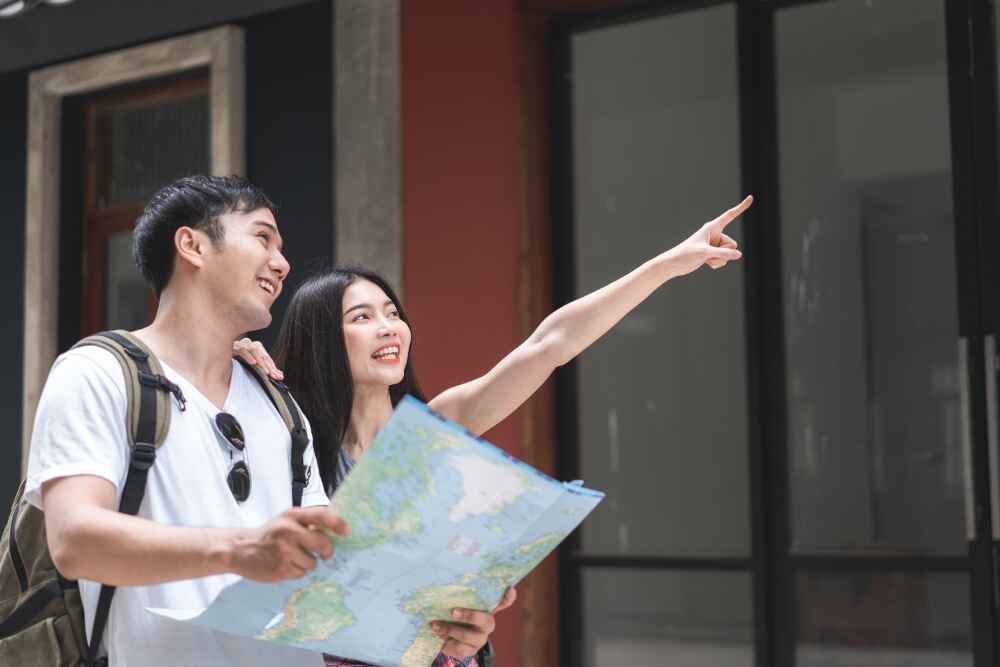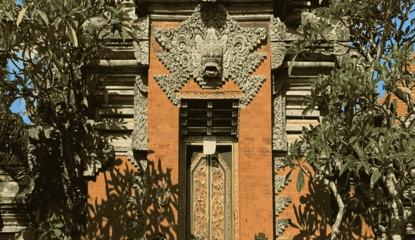Indonesia’s rich cultural diversity encompasses various ethnicities and religions, each contributing to a vibrant tapestry of traditions, rituals, and arts that highlight a deep commitment to coexistence, respect for differences, and unity. Here are four Indonesian traditions that beautifully symbolize peace and mutual respect among communities.
1. Ngejot (Bali)
Photo credit: piaagungbali.com
Ngejot, meaning "giving" in Balinese, is a tradition that embodies the spirit of sharing and friendship among people of different religions. Practiced during religious festivals like Galungan, Kuningan, Nyepi, Eid, and Christmas, this tradition involves families sharing food with neighbors and loved ones as a gesture of gratitude and goodwill.
Rooted in Tri Hita Karana, the Balinese philosophy promoting harmony between people, nature, and the divine, Ngejot is a heartwarming expression of community. It reflects strong human values of compassion, solidarity, and mutual care, reinforcing bonds and promoting peace across different faiths.
Tip for Travelers: To witness Ngejot in action, consider visiting Bali during the Galungan and Kuningan festivals. Remember to respect local customs and, if possible, bring a small token of gratitude if you’re invited to participate in a local event.
2. Pela Gandong (Maluku)
Photo credit: kawulamahardhika.wordpress.com
The Maluku Islands are home to the sacred tradition of Pela Gandong, an enduring symbol of peace that has strengthened social ties among Maluku’s communities. The term "Pela" signifies a bond, while "Gandong" means sibling, indicating a kinship between two villages or communities, regardless of religion or ethnicity. Originating as a pact between Muslim and Christian villages, Pela Gandong emphasizes that everyone is family.
A notable example of this tradition is the bond between Kailolo and Tihulale villages. When Kailolo built a mosque, Tihulale residents contributed resources. In return, when Tihulale constructed a church, Kailolo residents gifted earthenware to help. This mutual aid fosters harmony, as expressed in the local phrase "Ale Rasa Beta Rasa," which means “your pain is my pain”—an acknowledgment of shared empathy.
Tip for Travelers: To understand the rich meaning behind Pela Gandong, visit Ambon and consider a guided cultural tour to explore local communities and learn about their commitment to interfaith harmony.
3. Bakar Batu (Papua)
In Papua, the Bakar Batu ritual—also known as Barapen—is a communal cooking event that holds significant meaning beyond mere food preparation. It’s a traditional gathering where indigenous Papuan communities come together to cook using heated stones, sharing a meal to express gratitude, unity, and peace. This tradition is often held during important occasions, such as celebrations of peace, successful negotiations, or harvests.
During Bakar Batu, heated stones are layered with leaves, meat, and tubers, all of which are cooked through natural heat. The community dances, sings, and partakes in rituals that honor their connection with nature and each other. Bakar Batu serves as a reminder of Papuan values—simplicity, gratitude, and respect for nature and one another.
Cost Insight: Participating in a Bakar Batu experience costs approximately IDR 500,000–1,000,000 (around $32–64) per person, often organized as part of a cultural tour in the Baliem Valley.
Tip for Travelers: To experience Bakar Batu firsthand, visit Papua during the Baliem Valley Festival in August, where communities gather in traditional attire and invite guests to observe or even join in this sacred ritual.
4. Tudang Sipulung (South Sulawesi)
Photo credit: rakyatku.com
In South Sulawesi, the Bugis and Makassar communities practice Tudang Sipulung, or "sitting together," a tradition of dialogue and consensus. This centuries-old gathering, symbolizing democracy and mutual respect, involves leaders and community members convening to discuss issues and reach collective decisions. Whether at a family level or larger community meetings, Tudang Sipulung promotes peace by resolving conflicts through open dialogue.
Historically practiced since the 13th century, this tradition is still relevant today, with leaders like the Arung Matoa (village head) facilitating discussions that emphasize listening, compromise, and respect for each person’s voice.
Tip for Travelers: To experience this tradition, visit South Sulawesi and inquire about village meetings. Alternatively, explore the cultural archives in Makassar’s museums to learn about Bugis and Makassar customs.
Discover Indonesia’s Peaceful Spirit
These beautiful traditions reflect Indonesia’s deep commitment to peace, unity, and understanding among its diverse communities. By immersing yourself in Indonesia’s cultural practices, you not only witness the magic of these peaceful traditions but also contribute to fostering intercultural understanding—essential in today’s interconnected world.
Stay updated with cultural experiences across Indonesia by following @wonderfulindonesia on Instagram. Let these timeless traditions inspire your next journey in #WonderfulIndonesia, where every step unfolds a tale of harmony and togetherness.







